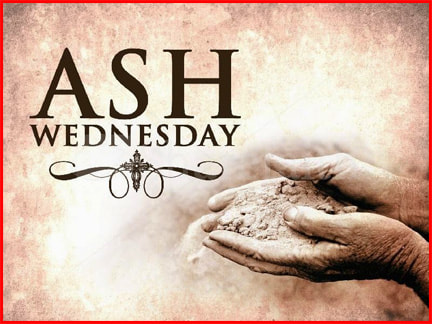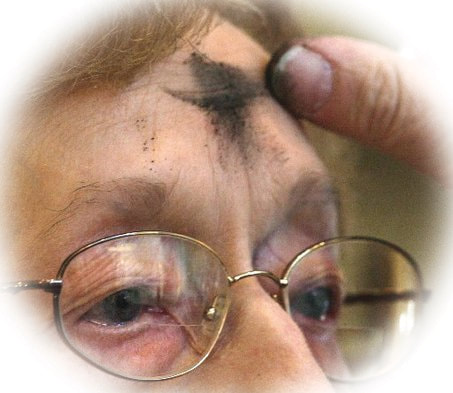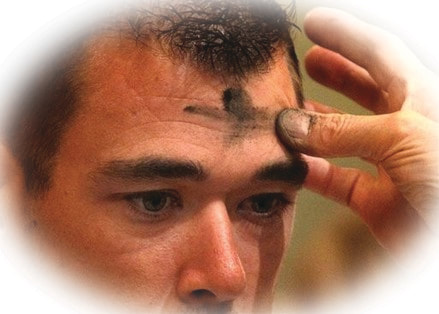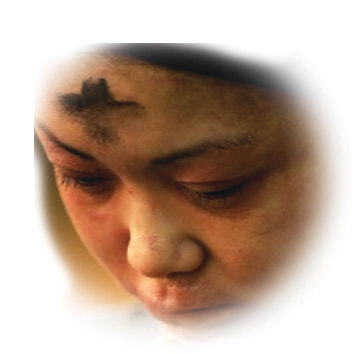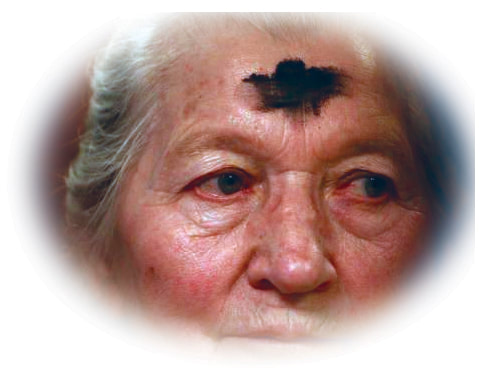| Devotion to Our Lady |
|
- Homepage
-
Daily Thoughts
- 2023 October Daily Thoughts
- Daily Thoughts Lent 2020
- Daily Thoughts for Advent 2019
- Daily Thoughts for October 2019
- Daily Thoughts for September 2019
- Daily Thoughts for August 2019
- Daily Thoughts for July
- Daily Thoughts for June
- Daily Thoughts for Easter 2019
- Daily Thoughts for Lent 2019
- Daily Thoughts for Christmas
- Daily Thoughts Easter 2022
- Sacred Heart
- Holy Ghost
-
Spiritual Life
- Holy Mass Explained
- First Friday Devotions
- First Saturday Devotions
- The Mercy of God
- Vocations
- The Path Everyone Must Walk >
- Gift of Failure
- Halloween or Hell-O-Ween?
- Ignatian Spiritual Exercises >
- Meditation is Soul-Saving
- Spiritual Communion
- Miraculous Medal
- Enrollment in Miraculous Medal
- St. Benedict Medal
- Holy Water
- Advice on Prayer
- Your Daily Mary
-
Prayers
- September Devotions
- Seven Sorrows of Our Lady
-
Novenas
>
- NV-Help of Christians
- NV-Nativity of Our Lady
- NV-Seven Sorrows
- NV- Sorrowful Heart
- NV-Pope St Pius X
- NV-La Salette
- NV-St Michael Archangel
- NV-Immaculate Heart
- NV-Assumption
- NV-Novena for Fathers
- NV-Novena for Your Mother
- NV-St Raphael Archangel
- NV-Souls in Purgatory
- NV-All Saints Day
- NV-Christ the King
- NV-Divine Motherhood
- NV-Guardian Angels
- NV-Rosary
- NV-Mirac Med
- NV- Imm Conc
- NV - Guadalupe
- NV - Nativity of Jesus
- NV-Epiphany
- NV-OL Good Success
- NV-Lourdes
- NV-St Patrick
- NV-St Joseph
- NV-Annunciation
- NV-St Louis de Montfort
- NV-OL Good Counsel
- NV-Last Supper
- NV-Passion
- NV-Pentecost
- NV-Ascension
- NV-Sacred Heart
- NV-Sacred Heart & Perpetual Help
- NV-Corpus Christi
- NV-OL of Perpetual Help
- NV-Queenship BVM
- NV-OL of Mount Carmel
- NV-St Mary Magdalen
- NV- Im Hrt
- August Devotions to IHM
- Immaculate Heart of Mary
- Litany of Dependence
- Prayers to St Mary Magdalen
- Prayers in Times of Sickness Disease & Danger
- Holy Souls in Purgatory
- Meditations on the Litany of Our Lady
- Special Feast Days
- Prayers to Mary (Mon-Sun)
- Litanies to Our Lady >
- Various & Special Needs
- Our Lady of the Rosary
- Our Lady of Mt. Carmel
- Our Lady of Perpetual Help
- Our Lady of Guadalupe
- Other titles of Our Lady
-
Rosary
- Downloads
- Consecration
- Easter Season
-
Holy Week
- Last Seven Words of Jesus >
- Characters of Passion >
- The Last Days of Christ
- Before Palm Sunday
- Palm Sunday
- Monday in Holy Week
- Tuesday in Holy Week
- Wednesday in Holy Week
- Holy Thursday (Last Supper)
- Holy Thursday (Agony & Arrest)
- Night Vigil with Christ
- Good Friday (Pilate & Herod)
- Good Friday (Way of Cross & Crucifixion)
- Saturday in Holy Week
-
Lent
- Ideas for Lent
- Daily Lenten Planner
- Daily Lenten Liturgy
- From Cold to Hot
- Lent with Aquinas
- Lent with Dom Gueranger
- Virtues for Lent
- History of Penance
- How Expensive is Sin?
- Confession of Sins
- Letter to Friends of the Cross
- Sermons for Lent
- Stations of the Cross >
- Lenten Prayers
- 7 Penitential Psalms
- Lenten Psalms SUN
- Lenten Psalms MON
- Lenten Psalms TUE
- Lenten Psalms WED
- Lenten Psalms THU
- Lenten Psalms FRI
- Lenten Psalms SAT
- Lenten Laughs
- Septuagesima
-
Christmas
- Epiphany Explained
- Suggestions for Christmas
- Food For Thought
- Christmas with Aquinas
- Christmas with Dom Gueranger
- Christmas Prayers
- Candles & Candlemas
- Christmas Sermons
- Christmas Prayers SUN
- Christmas Prayers MON
- Christmas Prayers TUE
- Christmas Prayers WED
- Christmas Prayers THU
- Christmas Prayers FRI
- Christmas Prayers SAT
- Twelve Days of Christmas >
-
Advent Journey
- Purgatory
- Christ the King
- Legion of Mary
- Scapular
-
Saints
-
Martyrs for the Faith
>
- Your Daily Martyr >
- All 365 Days of Martyrs
- Cristeros
- St Valentine & Valentine's Day
- Martyrs--Thomas Becket
- Martyrs--John the Apostle
- Holy Machabees
- Age of Martyrdom
- Carmelites of Compiegne
- Martyrs--Peter & Paul
- Martyrs--John the Baptist
- Martyrs--Andrew
- Martyrs--James the Great
- Martyrs--North American
- Martyrs--Seven Holy Sleepers
- Martyrs--Afra
- School of Martyrdom
- Martyrs--Christina
- Desert Saints >
- Saints for Sinners >
- Saints of Mary >
- History of All Saints Day
-
Martyrs for the Faith
>
- Precious Blood
- Synod 2023
-
Catechism
- Catechism Lesson 1
- Catechism Lesson 2
- Catechism Lesson 3
- Catechism Lesson 4
- Catechism Lesson 5
- Catechism Lesson 6
- Catechism Lesson 7
- Catechism Lesson 8
- Catechism Lesson 9
- Catechism Lesson 10
- Catechism Lesson 11
- Catechism Lesson 12
- Catechism Lesson 13
- Catechism Lesson 14
- Catechism Lesson 15
- Catechism Lesson 16
- Catechism Lesson 17
- Catechism Lesson 18
- Catechism Lesson 19
- Catechism Lesson 20
- Catechism Lesson 21
- Catechism Lesson 22
- Bible Study
-
Calendar
- Miracles
- Apparitions
- Shrines
- Prophecies
- Angels Homepage
- Hell
-
Church Crisis
- Conspiracy Theories
- Amazon Synod 2019 >
- Liberalism & Modernism
- Modernism--Encyclical Pascendi
- Modernism & Children
- Modernism--Documents
- The Francis Pages
- Church Enemies on Francis
- Francis Quotes
- Amoris Laetitia Critique
- Danger of Ignorance (Pius X)
- Restore all In Christ (Pius X)
- Catholic Action (Pius X)
- Another TITANIC Disaster?
- The "Errors of Russia"
- CRISIS PRAYERS
- Election Novena 2024
- The Anger Room
- War Zone
- Life of Mary
- Spiritual Gym
- Stupidity
- Coronavirus and Catholicism
- History & Facts
- Books
- Catholic Family
- Children
- Daily Quiz
-
Novena Church & Pope
- Day 01 Church-Pope Novena
- Day 02 Church-Pope Novena
- Day 03 Church-Pope Novena
- Day 04 Church-Pope Novena
- Day 05 Church-Pope Novena
- Day 06 Church-Pope Novena
- Day 07 Church-Pope Novena
- Day 08 Church-Pope Novena
- Day 09 Church-Pope Novena
- Day 10 Church-Pope Novena
- Day 11 Church-Pope Novena
- Day 12 Church-Pope Novena
- Day 13 Church-Pope Novena
- Day 14 Church-Pope Novena
- Day 15 Church-Pope Novena
- Day 16 Church-Pope Novena
- Day 17 Church-Pope Novena
- Day 18 Church-Pope Novena
- Day 19 Church-Pope Novena
- Day 20 Church-Pope Novena
- Day 21 Church-Pope Novena
- Day 22 Church-Pope Novena
- Day 23 Church-Pope Novena
- Day 24 Church-Pope Novena
- Day 25 Church-Pope Novena
- Day 26 Church-Pope Novena
- Day 27 Church-Pope Novena
- Day 28 Church-Pope Novena
- Day 29 Church-Pope Novena
- Day 30 Church-Pope Novena
- Day 31 Church-Pope Novena
- Day 32 Church-Pope Novena
- Day 33 Church-Pope Novena
- Day 34 Church-Pope Novena
- Day 35 Church-Pope Novena
- Day 36 Church-Pope Novena
- Day 37 Church-Pope Novena
- Day 38 Church-Pope Novena
- Day 39 Church-Pope Novena
- Day 40 Church-Pope Novena
- Day 41 Church-Pope Novena
- Day 42 Church-Pope Novena
- Day 43 Church-Pope Novena
- Day 44 Church-Pope Novena
- Day 45 Church-Pope Novena
- Day 46 Church-Pope Novena
- Day 47 Church-Pope Novena
- Day 48 Church-Pope Novena
- Day 49 Church-Pope Novena
- Day 50 Church-Pope Novena
- Day 51 Church-Pope Novena
- Day 52 Church-Pope Novena
- Day 53 Church-Pope Novena
- Day 54 Church-Pope Novena
- Penance Novena
- Daily WeAtheR Forecast
ALL THAT YOU WILL NEED FOR A GOOD, HOLY AND SUCCESSFUL LENT—UPDATED DAILY ALL THROUGH LENT
The Greatest and Most Important Time in the Church's Liturgical Year
CLICK ON ANY LINK BELOW
Also lots of LENTEN & HOLY WEEK DOWNLOADS on the downloads page (click here)
LENTEN PAGES
| ASH WEDNESDAY COUNTDOWN | LENT (MAIN PAGE) | DAILY THOUGHTS | DAILY LENTEN LITURGY | DAILY LENTEN PLANNER |
| LENTEN PRAYERS | THE 7 PENITENTIAL PSALMS | IDEAS FOR PENANCE | LENT WITH AQUINAS | LENT WITH DOM GUERANGER |
| HISTORY OF PENANCE | PENANCES OF THE SAINTS | HOW EXPENSIVE IS SIN? | CONFESSION OF SINS | ARE FEW SOULS SAVED? |
| VIRTUES FOR LENT | FROM COLD TO HOT | LENTEN LAUGHS | | SERMONS FOR LENT | LETTER TO FRIENDS OF THE CROSS |
| STATIONS OF THE CROSS (INDIVIDUALLY) | ALL 14 STATIONS OF THE CROSS | LITANIES FOR PASSIONTIDE |
| THE LAST DAYS OF CHRIST | SPECIAL HOLY WEEK PAGES |
LITURGICAL PRAYERS FOR EACH DAY OF THE WEEK DURING LENT
| Sundays of Lent | Mondays of Lent | Tuesdays of Lent | Wednesdays of Lent | Thursdays of Lent | Fridays of Lent | Saturdays of Lent |
HOLY WEEK PAGES
| Holy Week Main Page | Before Palm Sunday | Palm Sunday | The Last Days of Christ | Holy Thursday Last Supper Novena | Good Friday Passion Novena |
| Monday of Holy Week | Tuesday of Holy Week | Wednesday of Holy Week | Holy Thursday (Last Supper) | Holy Thursday (Agony & Arrest) |
| Night Vigil With Christ | Good Friday (Pilate & Herod) | Good Friday (Way of Cross & Crucifixion) | Holy Saturday |
THE CHIEF CHARACTERS OF THE PASSION
| Characters of the Passion Mainpage | The Sanhedrin | Pharisees | Scribes | Saducees | Jewish Crowd | Roman Rulers |
| Judas | Annas & Caiphas | Pontius Pilate | Herod | Barabbas | Dismas the Good Thief | St. Peter | St. John | Mary Magdalen |
THE FOURTEEN STATIONS OF THE CROSS
| Introduction to the Stations of the Cross | Short Version of the Stations of the Cross (all 14 on one page) | 1st Station | 2nd Station | 3rd Station |
| 4th Station | 5th Station | 6th Station | 7th Station | 8th Station | 9th Station | 10th Station | 11th Station | 12th Station | 13th Station | 14th Station |
THE LAST SEVEN WORDS OF JESUS FROM THE CROSS
| Seven Last Words on the Cross (Introduction) | The 1st Word on the Cross | The 2nd Word on the Cross | The 3rd Word on the Cross |
| The 4th Word on the Cross | The 5th Word on the Cross | The 6th Word on the Cross | The 7th Word on the Cross |
PRAYERS AND DEVOTIONS TO THE SEVEN SORROWS OF OUR LADY
| Seven Sorrows Meditations | Short Prayers & Short Seven Sorrows Rosary | Longer Seven Sorrows Rosary |
| 1st Sorrow of Our Lady | 2nd Sorrow of Our Lady | 3rd Sorrow of Our Lady | 4th Sorrow of Our Lady |
| 5th Sorrow of Our Lady | 6th Sorrow of Our Lady | 7th Sorrow of Our Lady |
| Novena #1 to the Sorrowful Heart of Mary | Novena #2 to the Sorrowful Heart of Mary |
CLICK ON ANY LINK BELOW
Also lots of LENTEN & HOLY WEEK DOWNLOADS on the downloads page (click here)
LENTEN PAGES
| ASH WEDNESDAY COUNTDOWN | LENT (MAIN PAGE) | DAILY THOUGHTS | DAILY LENTEN LITURGY | DAILY LENTEN PLANNER |
| LENTEN PRAYERS | THE 7 PENITENTIAL PSALMS | IDEAS FOR PENANCE | LENT WITH AQUINAS | LENT WITH DOM GUERANGER |
| HISTORY OF PENANCE | PENANCES OF THE SAINTS | HOW EXPENSIVE IS SIN? | CONFESSION OF SINS | ARE FEW SOULS SAVED? |
| VIRTUES FOR LENT | FROM COLD TO HOT | LENTEN LAUGHS | | SERMONS FOR LENT | LETTER TO FRIENDS OF THE CROSS |
| STATIONS OF THE CROSS (INDIVIDUALLY) | ALL 14 STATIONS OF THE CROSS | LITANIES FOR PASSIONTIDE |
| THE LAST DAYS OF CHRIST | SPECIAL HOLY WEEK PAGES |
LITURGICAL PRAYERS FOR EACH DAY OF THE WEEK DURING LENT
| Sundays of Lent | Mondays of Lent | Tuesdays of Lent | Wednesdays of Lent | Thursdays of Lent | Fridays of Lent | Saturdays of Lent |
HOLY WEEK PAGES
| Holy Week Main Page | Before Palm Sunday | Palm Sunday | The Last Days of Christ | Holy Thursday Last Supper Novena | Good Friday Passion Novena |
| Monday of Holy Week | Tuesday of Holy Week | Wednesday of Holy Week | Holy Thursday (Last Supper) | Holy Thursday (Agony & Arrest) |
| Night Vigil With Christ | Good Friday (Pilate & Herod) | Good Friday (Way of Cross & Crucifixion) | Holy Saturday |
THE CHIEF CHARACTERS OF THE PASSION
| Characters of the Passion Mainpage | The Sanhedrin | Pharisees | Scribes | Saducees | Jewish Crowd | Roman Rulers |
| Judas | Annas & Caiphas | Pontius Pilate | Herod | Barabbas | Dismas the Good Thief | St. Peter | St. John | Mary Magdalen |
THE FOURTEEN STATIONS OF THE CROSS
| Introduction to the Stations of the Cross | Short Version of the Stations of the Cross (all 14 on one page) | 1st Station | 2nd Station | 3rd Station |
| 4th Station | 5th Station | 6th Station | 7th Station | 8th Station | 9th Station | 10th Station | 11th Station | 12th Station | 13th Station | 14th Station |
THE LAST SEVEN WORDS OF JESUS FROM THE CROSS
| Seven Last Words on the Cross (Introduction) | The 1st Word on the Cross | The 2nd Word on the Cross | The 3rd Word on the Cross |
| The 4th Word on the Cross | The 5th Word on the Cross | The 6th Word on the Cross | The 7th Word on the Cross |
PRAYERS AND DEVOTIONS TO THE SEVEN SORROWS OF OUR LADY
| Seven Sorrows Meditations | Short Prayers & Short Seven Sorrows Rosary | Longer Seven Sorrows Rosary |
| 1st Sorrow of Our Lady | 2nd Sorrow of Our Lady | 3rd Sorrow of Our Lady | 4th Sorrow of Our Lady |
| 5th Sorrow of Our Lady | 6th Sorrow of Our Lady | 7th Sorrow of Our Lady |
| Novena #1 to the Sorrowful Heart of Mary | Novena #2 to the Sorrowful Heart of Mary |
|
THE RITE OF BLESSING OF THE ASHES
Ashes on the Head—Ashes in the Mind!
Let us take a closer look at the Rite of Blessing of the Ashes, as used in the Traditional Rite or Extraordinary Rite of the Church—which devotes more blessings to the ashes than the modern rite. The blessings of the Church are, though relatively brief, full of profound teaching and rich in symbolism. The Opening Antiphon “Hear me, O Lord, for Thy mercy is kind! Look upon me according to the multitude of Thy tender mercies, O Lord!” (Psalm 68:17). “Save me, O God: for the waters are come in even unto my soul!” (Psalm 68:2). V. Glory be to the Father, and to the Son, and to the Holy Ghost. R. As it was in the beginning, is now, and ever shall be, world without end. Amen. “Hear me, O Lord, for Thy mercy is kind! Look upon me according to the multitude of Thy tender mercies, O Lord!” (Psalm 68:17). First Prayer Over the Ashes “Let us pray: Almighty, everlasting God, spare those who are repentant, be merciful to those who pray to Thee, and graciously send Thy holy angel from Heaven to bless ☩ and sanctify ☩ these ashes, that they may be a wholesome remedy for all who humbly implore Thy Holy Name; who accuse themselves by acknowledging their sins, who weep for their evil deeds in the sight of Thy divine mercy; who humbly and earnestly seek Thy fatherly love. Grant to us who call upon Thy Holy Name, that all who are sprinkled with these ashes for the forgiveness of their sins, may receive health for their bodies and salvation for their souls. Through Christ our Lord.” Second Prayer Over the Ashes “Let us pray: O God, Thou Who desirest not the death but the repentance of sinners, look graciously upon the weakness of our human nature, and, in Thy fatherly love, mercifully bless ☩ these ashes which are to be placed upon our heads as a sign of humility and a pledge of Thy forgiveness. We know that we are but ashes, and because of our wickedness must return to dust. May we obtain, from Thee, mercy the pardon of all our sins and the rewards promised to those who repent. Through Christ our Lord.” Third Prayer Over the Ashes “Let us pray: O God, Thou Who art moved by our acts of humility and appeased by our works of penance, turn Thy ear lovingly to our prayers, and, by the ashes sprinkled upon the heads of Thy servants, mercifully pour forth upon them the grace of Thy blessing, fill them with the spirit of repentance and truly grant what they ask for in the right way; and may whatever Thou grant, remain fixed and unchanged always. Through Christ our Lord.” Fourth Prayer Over the Ashes “Let us pray: Almighty, everlasting God, Who bestowed upon the people of Ninive, who repented in sackcloth and ashes, Thy merciful remedies, graciously grant that we may so imitate their outward behavior as inwardly to obtain Thy forgiveness. Through Christ our Lord. R. Amen.” The Imposition of Ashes Antiphons sung during the distribution of ashes. “Let us change our garment for ashes and sackcloth! Let us fast and lament before the Lord! For our God is plenteous in mercy to forgive sins!” (Joel 2:13). “Between the porch and the altar the priests the Lord’s ministers shall weep, and shall say: ‘Spare, O Lord, spare Thy people! And shut not the mouths of them that sing to Thee, O Lord!’” (Joel 2:17). The Responsorial “Let us amend for the better in those things in which we have sinned through ignorance: lest suddenly overtaken by the day of death, we seek space for penance, and are not able to find it. Hear O Lord, and have mercy: for we have sinned against thee” (taken from Esther ch. 13; Joel ch. 2). “Help us, O God, our Savior! And, for the glory of Thy Name, O Lord, deliver us! And forgive us our sins for Thy Name’s sake! O Lord deliver us! Listen, O Lord!” (Psalm 78:9). V. Glory be to the Father, and to the Son, and to the Holy Ghost. Listen, O Lord. The Final Prayer “Let us pray: Grant us, O Lord, to take up our duty as soldiers of Christ by holy fasting, that we, who are going to struggle with the evil spirits, may be protected by the help of self-restraint! Through Christ our Lord.” The First Words of the Rite of Blessing of Ashes The very first words that are uttered in the Rite of Blessing the Ashes are penitential words: “Hear me, O Lord, for Thy mercy is kind! Look upon me according to the multitude of Thy tender mercies, O Lord!” (Psalm 68:17). “Save me, O God: for the waters are come in even unto my soul!” (Psalm 68:2). These few words are a mere tip of an iceberg of similar expressions throughout Holy Scripture (which forms the backbone of the Church’s Liturgy) and of the Lenten Liturgy itself. Holy Mother Church will be plaintively crying out to God with such and similar words all throughout Lent. Lent is a time of acknowledging one’s miserable state and misery of life—begging for God to compassionately hear our cries and mercifully do something to alleviate our miseries. “Hear me, O Lord, for Thy mercy is kind!” brings back to the sinful mind the fact that God’s mercy is the one thing necessary for happiness—it is the one thing, nay, the only thing that we will desire on our deathbed—MERCY! Hence, there springs to mind other such similar plaintive, yet confident, cries for mercy. First Words of the Mass of Ash Wednesday For example, the Entrance Hymn (Introit) of the Mass for Ash Wednesday also plants the seed of hope in our sinful burdened hearts and minds: “Thou hast mercy on all, O Lord, and hate none of the things which Thou hast made, overlooking the sins of men for the sake of repentance, and sparing them: because Thou art the Lord our God!” (Wisdom 11:24-25, 27). “Have pity on me, O God! Have pity on me, for in Thee I take refuge!” (Psalm 56:2). “If your sins be as scarlet, they shall be made as white as snow! And if they be red as crimson, they shall be white as wool!” (Isaias 1:18). “For the Son of man is come to seek and to save that which was lost!” (Luke 19:10). Dom Gueranger in the volume on Lent, from his masterly work The Liturgical Year, writes: “From the liturgy of Ash Wednesday we learn of the prophet Joel and how acceptable to God is the expiation of fasting. When the penitent sinner inflicts corporal penance upon himself, God's justice is appeased. We have a proof of it in the Ninivites. If the Almighty pardoned an infidel city―as Ninive was―solely because its inhabitants sought for mercy under the garb of penance; what will He not do in favor of His own people, who offer Him the twofold sacrifice, exterior works of mortification, and true contrition of heart? Let us, then, courageously enter on the path of penance. “We are living in an age when, through lack of faith and of fear of God, those practices which are as ancient as Christianity itself, and on which we might almost say it was founded, are falling into disuse; it befits us to be on our guard, lest we, too, should imbibe the false principles, which have so fearfully weakened the Christian spirit. Let us never forget our own personal debt to the divine justice, which will remit neither our sins nor the punishment due to them, except inasmuch as we are ready to make satisfaction. We have just been told that these bodies, which we are so inclined to pamper, are but dust; and as to our souls, which we are so often tempted to sacrifice by indulging the flesh, they have claims upon the body, claims of both restitution and obedience” (Dom Gueranger, The Liturgical Year, Lent). |
THE HISTORY OF LENT
The Shaping of Lent Throughout the Centuries
The Shaping of Lent Throughout the Centuries
The Forty Days’ Fast, which we call Lent (In most languages the name given to this Fast expresses the number of the day, Forty. But our word Lent signifies the Spring-Fast; for Lenten-Tide, in the ancient English-Saxon language, was the season of Spring. Translator.), is the Church’s preparation for Easter, and was instituted at the very commencement of Christianity. Our Blessed Lord himself sanctioned it by his fasting forty days and forty nights in the desert; and though he would not impose it on the world by an express commandment, (which, then, could not have been open to the power of dispensation,) yet he showed plainly enough by his own example, that Fasting, which God had so frequently ordered in the Old Law, was to be also practiced by the Children of the New.
The Disciples of St. John the Baptist came, one day, to Jesus, and said to him: “Why do we and the Pharisees fast often, but thy Disciples do not fast? And Jesus said to them: Can the children of the bridegroom mourn, as long as the bridegroom is with them? But the days will come, when the bridegroom shall be taken away from them, and then they shall fast” (Matthew 9:14-15).
Hence, we find it mentioned in the Acts of the Apostles, how the Disciples of our Lord, after the Foundation of the Church, applied themselves to Fasting. In their Epistles, also, they recommended it to the Faithful. Nor could it be otherwise. Though the divine mysteries, whereby our Savior wrought our redemption, have been consummated, yet are we still Sinners: and where there is sin, there must be expiation.
The Apostles, therefore, legislated for our weakness, by instituting, at the very commencement of the Christian Church, that the Solemnity of Easter should be preceded by a universal Fast; and it was only natural, that they should have made this period of Penance to consist of Forty Days, seeing that our Divine Master had consecrated that number by his own Fast. St. Jerome , St. Cyril of Alexandria, St. Isidore of Seville, and others of the holy Fathers, assure us that Lent was instituted by the Apostles, although, at the commencement, there was not any uniform way of observing it.
We have already seen, in our Septuagesima, that the Orientals begin their Lent much earlier than the Latins, owing to their custom of never fasting on Saturdays, (or, in some places, even on Thursdays). They are, consequently, obliged, in order to make up the forty days, to begin the Lenten Fast on the Monday preceding our Sexagesima Sunday. These are the kind of exceptions, which prove the rule. We have also shown, how the Latin Church, ― which, even so late as the 6th Century, kept only thirty-six fasting days during the six weeks of Lent, (for the Church has never allowed Sundays to be kept as days of fast) thought proper to add, later on, the last four days of Quinquagesima, in order that her Lent might contain exactly Forty Days of Fast.
The whole subject of Lent has been so often and so fully treated, that we shall abridge, as much as possible, the History we are now giving. The nature of our Work forbids us to do more, than insert what is essential for the entering into the spirit of each Season. God grant, that we may succeed in showing to the Faithful the importance of the holy institution of Lent! Its influence on the spiritual life, and on the very salvation, of each one among us, can never be over-rated.
Lent, then, is a time consecrated, in an especial manner, to penance; and this penance is mainly practiced by Fasting. Fasting is an abstinence, which man voluntarily imposes upon himself, as an expiation for sin, and which, during Lent, is practiced in obedience to the general law of the Church.
According to the actual discipline of the Western Church, the Fast of Lent is not more rigorous than that prescribed for the Vigils of certain Feasts, and for the Ember Days; but it is kept up for Forty successive Days, with the single interruption of the intervening Sundays.
We deem it unnecessary to show the importance and advantages of Fasting. The Sacred Scriptures, both of the Old and New Testament, are filled with the praises of this holy practice. The traditions of every nation of the world testify the universal veneration, in which it has ever been held; for there is not a people, nor a religion, how much soever it may have lost the purity of primitive traditions, which is not impressed with this conviction―that man may appease his God by subjecting his body to penance.
St. Basil, St. John Chrysostom, St. Jerome, and St. Gregory the Great, make the remark, that the commandment put upon our First Parents, in the earthly paradise, was one of Abstinence; and that it was by their not exercising this virtue, that they brought every kind of evil upon themselves and us their children. The life of privation, which the king of creation had thenceforward to lead on the earth―(for the earth was to yield him nothing of its own natural growth, save thorns and thistles)―was the clearest possible exemplification of the law of penance, imposed by the anger of God on rebellious man.
During the two thousand and more years, which preceded the Deluge, men had no other food than the fruits of the earth, and these were only got by the toil of hard labor. But when God, as we have already observed, mercifully shortened man’s life, (that so he might have less time and power for sin)―he permitted him to eat the flesh of animals, as an additional nourishment in that state of deteriorated strength. It was then, also, that Noah, guided by a divine inspiration, extracted the juice of the grape, which thus formed a second stay for human debility.
Fasting, then, is the abstaining from such nourishment as these, which were permitted for the support of bodily strength. And firstly, it consisted in abstinence from flesh-meat, because it is a food that was given to man by God, out of condescension to his weakness, and not as one absolutely essential for the maintenance of life. Its privation, greater or less according to the regulations of the Church, is essential to the very notion of Fasting.
Thus, whilst in many countries, the use of eggs, milk-meats, and even dripping and lard, is tolerated―the abstaining from flesh-meat is everywhere maintained, as being essential to Fasting. For many centuries, eggs and milk-meats were not allowed, because they come under the class of animal food: even to this day, they are forbidden in the Eastern Churches, and are only allowed in the Latin Church by virtue of an annual dispensation. The precept of abstaining from flesh-meat is so essential to Lent, that even on Sundays, when the Fasting is interrupted, Abstinence is an obligation, binding even on those who are dispensed from the fasts of the week, unless there be a special dispensation granted for eating meat on the Sundays.
In the early ages of Christianity, Fasting included also the abstaining from Wine, as we learn from St. Cyril of Jerusalem, St. Basil, St. John Chrysostom, Theophilus of Alexandria, and others. In the West, this custom soon fell into disuse. The Eastern Christians kept it up much longer, but even with them it has ceased to be considered as obligatory. (Dom Guerange, The Liturgical Year, Volume on Lent)
The Disciples of St. John the Baptist came, one day, to Jesus, and said to him: “Why do we and the Pharisees fast often, but thy Disciples do not fast? And Jesus said to them: Can the children of the bridegroom mourn, as long as the bridegroom is with them? But the days will come, when the bridegroom shall be taken away from them, and then they shall fast” (Matthew 9:14-15).
Hence, we find it mentioned in the Acts of the Apostles, how the Disciples of our Lord, after the Foundation of the Church, applied themselves to Fasting. In their Epistles, also, they recommended it to the Faithful. Nor could it be otherwise. Though the divine mysteries, whereby our Savior wrought our redemption, have been consummated, yet are we still Sinners: and where there is sin, there must be expiation.
The Apostles, therefore, legislated for our weakness, by instituting, at the very commencement of the Christian Church, that the Solemnity of Easter should be preceded by a universal Fast; and it was only natural, that they should have made this period of Penance to consist of Forty Days, seeing that our Divine Master had consecrated that number by his own Fast. St. Jerome , St. Cyril of Alexandria, St. Isidore of Seville, and others of the holy Fathers, assure us that Lent was instituted by the Apostles, although, at the commencement, there was not any uniform way of observing it.
We have already seen, in our Septuagesima, that the Orientals begin their Lent much earlier than the Latins, owing to their custom of never fasting on Saturdays, (or, in some places, even on Thursdays). They are, consequently, obliged, in order to make up the forty days, to begin the Lenten Fast on the Monday preceding our Sexagesima Sunday. These are the kind of exceptions, which prove the rule. We have also shown, how the Latin Church, ― which, even so late as the 6th Century, kept only thirty-six fasting days during the six weeks of Lent, (for the Church has never allowed Sundays to be kept as days of fast) thought proper to add, later on, the last four days of Quinquagesima, in order that her Lent might contain exactly Forty Days of Fast.
The whole subject of Lent has been so often and so fully treated, that we shall abridge, as much as possible, the History we are now giving. The nature of our Work forbids us to do more, than insert what is essential for the entering into the spirit of each Season. God grant, that we may succeed in showing to the Faithful the importance of the holy institution of Lent! Its influence on the spiritual life, and on the very salvation, of each one among us, can never be over-rated.
Lent, then, is a time consecrated, in an especial manner, to penance; and this penance is mainly practiced by Fasting. Fasting is an abstinence, which man voluntarily imposes upon himself, as an expiation for sin, and which, during Lent, is practiced in obedience to the general law of the Church.
According to the actual discipline of the Western Church, the Fast of Lent is not more rigorous than that prescribed for the Vigils of certain Feasts, and for the Ember Days; but it is kept up for Forty successive Days, with the single interruption of the intervening Sundays.
We deem it unnecessary to show the importance and advantages of Fasting. The Sacred Scriptures, both of the Old and New Testament, are filled with the praises of this holy practice. The traditions of every nation of the world testify the universal veneration, in which it has ever been held; for there is not a people, nor a religion, how much soever it may have lost the purity of primitive traditions, which is not impressed with this conviction―that man may appease his God by subjecting his body to penance.
St. Basil, St. John Chrysostom, St. Jerome, and St. Gregory the Great, make the remark, that the commandment put upon our First Parents, in the earthly paradise, was one of Abstinence; and that it was by their not exercising this virtue, that they brought every kind of evil upon themselves and us their children. The life of privation, which the king of creation had thenceforward to lead on the earth―(for the earth was to yield him nothing of its own natural growth, save thorns and thistles)―was the clearest possible exemplification of the law of penance, imposed by the anger of God on rebellious man.
During the two thousand and more years, which preceded the Deluge, men had no other food than the fruits of the earth, and these were only got by the toil of hard labor. But when God, as we have already observed, mercifully shortened man’s life, (that so he might have less time and power for sin)―he permitted him to eat the flesh of animals, as an additional nourishment in that state of deteriorated strength. It was then, also, that Noah, guided by a divine inspiration, extracted the juice of the grape, which thus formed a second stay for human debility.
Fasting, then, is the abstaining from such nourishment as these, which were permitted for the support of bodily strength. And firstly, it consisted in abstinence from flesh-meat, because it is a food that was given to man by God, out of condescension to his weakness, and not as one absolutely essential for the maintenance of life. Its privation, greater or less according to the regulations of the Church, is essential to the very notion of Fasting.
Thus, whilst in many countries, the use of eggs, milk-meats, and even dripping and lard, is tolerated―the abstaining from flesh-meat is everywhere maintained, as being essential to Fasting. For many centuries, eggs and milk-meats were not allowed, because they come under the class of animal food: even to this day, they are forbidden in the Eastern Churches, and are only allowed in the Latin Church by virtue of an annual dispensation. The precept of abstaining from flesh-meat is so essential to Lent, that even on Sundays, when the Fasting is interrupted, Abstinence is an obligation, binding even on those who are dispensed from the fasts of the week, unless there be a special dispensation granted for eating meat on the Sundays.
In the early ages of Christianity, Fasting included also the abstaining from Wine, as we learn from St. Cyril of Jerusalem, St. Basil, St. John Chrysostom, Theophilus of Alexandria, and others. In the West, this custom soon fell into disuse. The Eastern Christians kept it up much longer, but even with them it has ceased to be considered as obligatory. (Dom Guerange, The Liturgical Year, Volume on Lent)
Web Hosting by Just Host

